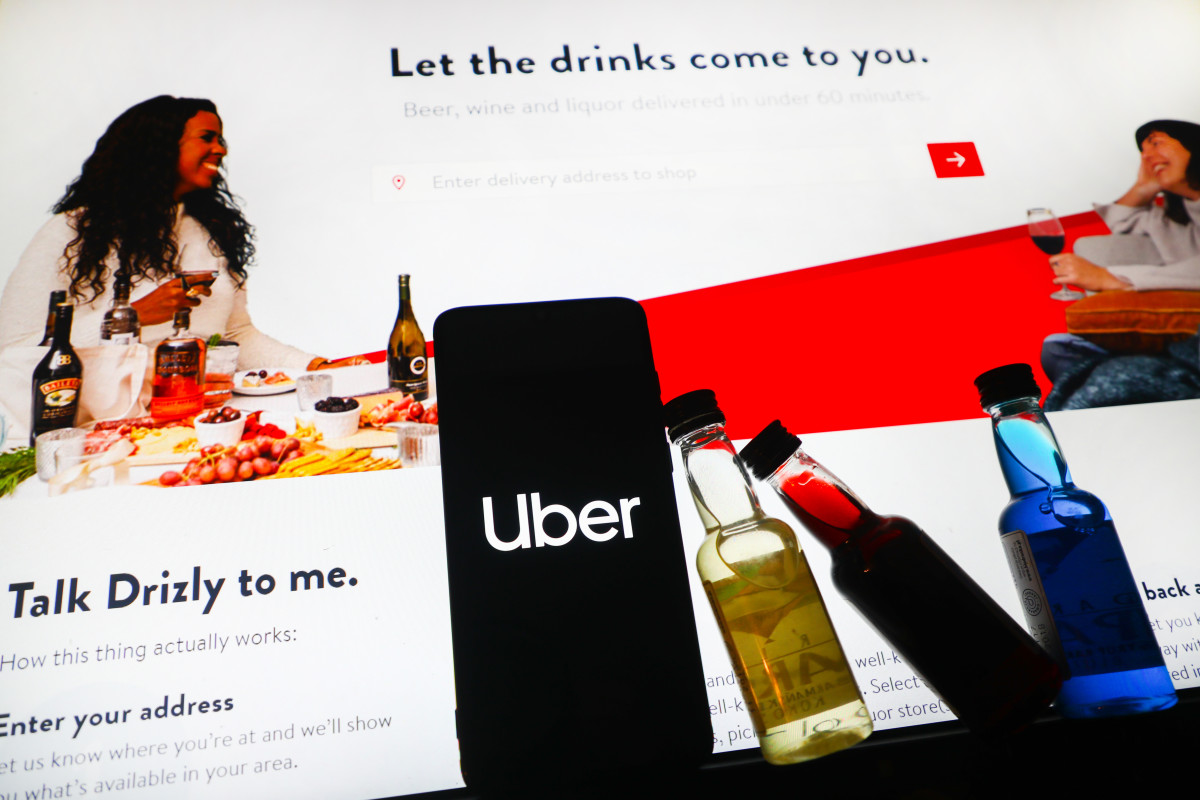DMT
Uber shutting down popular billion-dollar service
The rideshare app is giving up on a venture in which it invested $1.1 billion in 2021.

Of the many innovations and strokes of genius that came out of the past decade, ride sharing -- and the many subsequent conveniences that followed -- is certainly one of the most transformational.
Not too long ago, city dwellers looking to get anywhere from the airport to uptown had to hope they'd be able to grab an empty cab. For the suburban population, calling a car service was an option, but that required planning and took any spontaneity out of a trip.
Related: Target shoppers suddenly buying up common $7 item
Enter Uber (UBER) - Get Free Report, formerly known as Ubercab. The ride-sharing app, which went on to disrupt much of the taxi industry, was born out of necessity when its founders kept struggling to find a reasonably priced car service in several cities.
Uber's story follows a typical path. A company finds an untapped corner of a market with a lot of pent-up demand and delivers the solution seamlessly to that user base.
And there was demand — so much so that the company went public in 2019 at a valuation of about $75 billion.
But a year later, the pandemic hit and everybody stopped traveling. Uber had to pivot, so it began to pour resources into its burgeoning new concept UberEats, plus it acquired competitor Postmates in the same year.
The food-delivery service connected folks sheltering at home with local restaurants that were slowly starting to come online again. And suddenly Uber had a robust, multipronged business that could shield it from singular market downturns.
And where there is demand for food, there is usually demand for alcohol. So one year later, Uber acquired alcohol delivery service Drizly for $1.1 billion.
Uber shuts down beloved service
Drizly was different from Uber's other services. Rather than hiring out contract drivers, as Uber and UberEats do, it worked directly with local liquor stores and their employees to fulfill orders. Drizly was simply the middleman taking orders from thirsty customers.
On Monday, Uber said it would shut down Drizly to focus on more central aspects to the business, namely food.
"After three years of Drizly operating independently within the Uber family, we've decided to close the business and focus on our core Uber Eats strategy of helping consumers get almost anything — from food to groceries to alcohol — all on a single app," Pierre-Dimitri Gore-Coty, Uber's senior vice president for delivery, said in a statement.
"We're grateful to the Drizly team for their many contributions to the growth of the BevAlc delivery category as the original industry pioneer."
More Technology:
- Police warn parents about a dangerous new iPhone feature
- Google to start deleting inactive accounts this week
- Major dating apps are yanking their ads from Meta for a disturbing reason
In 2020 (a year before Uber's acquisition), Drizly revealed it had a cybersecurity flaw which made the information of about 2.5 million customers vulnerable.
The Federal Trade Commission found that Drizly had been aware of the flaw at least two years prior but had not taken the necessary steps to patch the issue. It's not clear if this debacle played into Uber's ultimate decision to part ways.
Uber still delivers alcohol on its UberEats app, as long as customers verify they're of legal drinking age.
Unlock the secrets of the stock market with Real Money Pro. Gain direct access to elite portfolio managers' top stock picks and time-tested investment strategies. Embark on your journey to financial success — start now.
dimitri
-

 Psychedelics1 week ago
Psychedelics1 week agoCybin Announces Publication of Research Manuscript in the Journal of Medicinal Chemistry
-

 Law & Regulation1 week ago
Law & Regulation1 week agoClearmind signs agreement with Hebrew University for psychedelic compound rights
-

 Psilocybin1 week ago
Psilocybin1 week agoCalifornia advances bill for psychedelics centers
-

 Psilocybin5 days ago
Psilocybin5 days agoPassover Perspectives: Psychedelics, Moses, and the Burning Bush
-

 Psychedelics1 week ago
Psychedelics1 week agoRevive Therapeutics Announces FDA Acceptance of Meeting Request for Long COVID Diagnostic Product
-

 Psychedelics1 week ago
Psychedelics1 week agoPsychedelics Can Offer More Than Therapy On Its Own
-

 Psychedelics4 days ago
Psychedelics4 days agoAlgernon NeuroScience and the Centre for Human Drug Research to Present DMT Phase 1 Stroke Clinical Data at the Interdisciplinary Conference on Psychedelic Research June 6 – 8th, 2024
-

 Psychedelics5 days ago
Psychedelics5 days agoRevive Therapeutics Announces Type C Meeting Request Granted by FDA for Clinical Study of Bucillamine to Treat Long COVID








